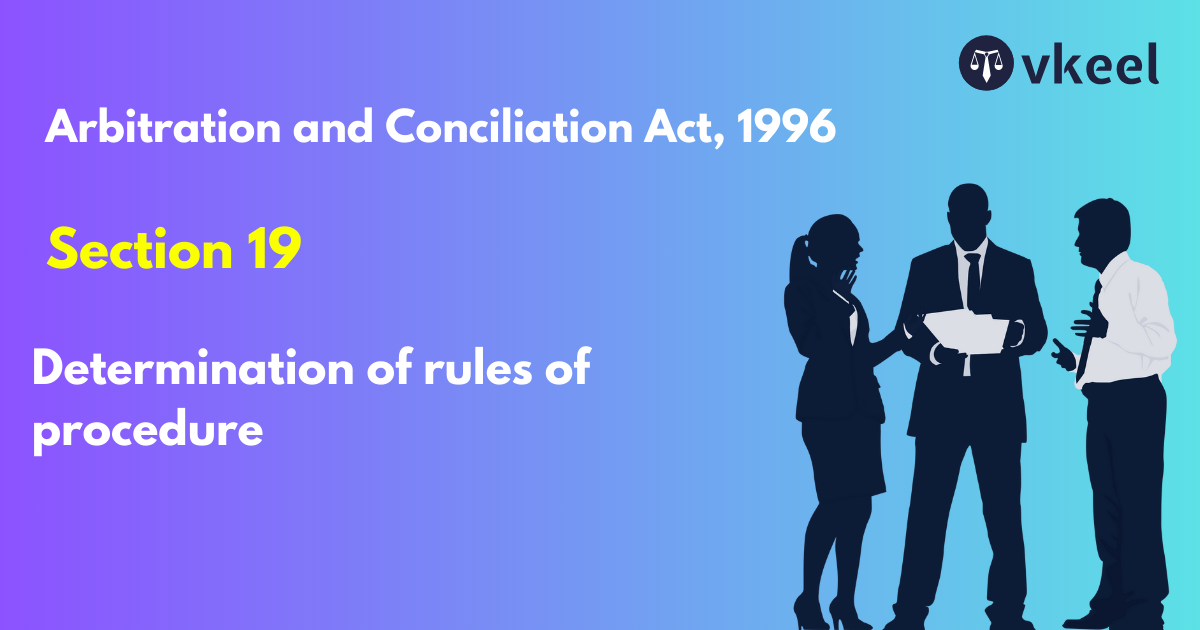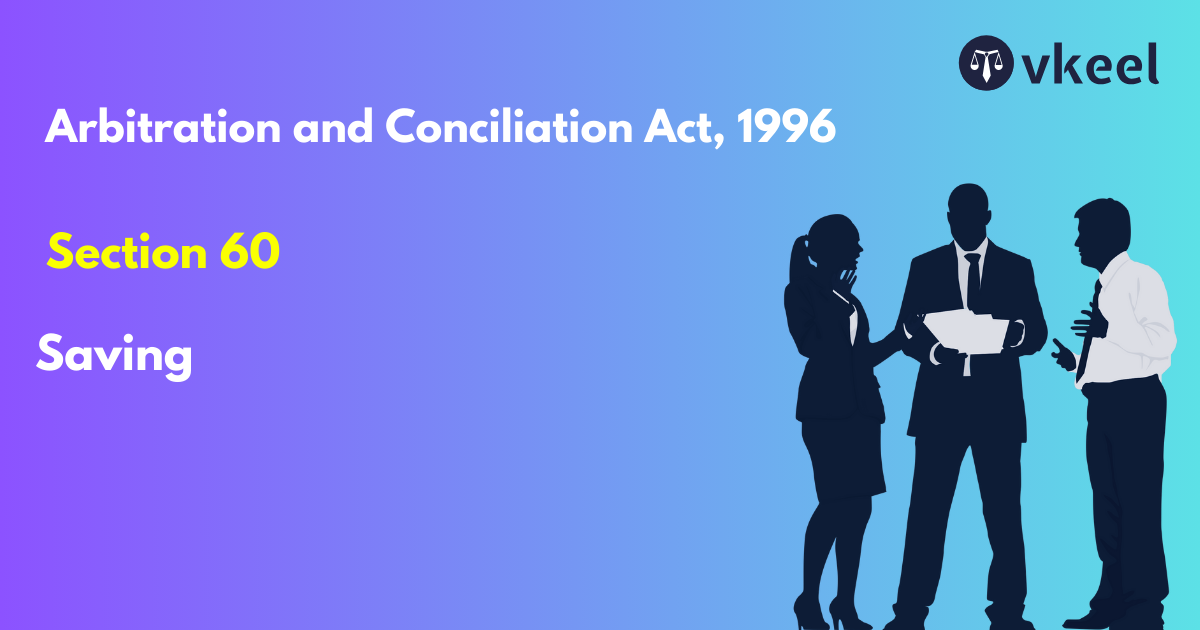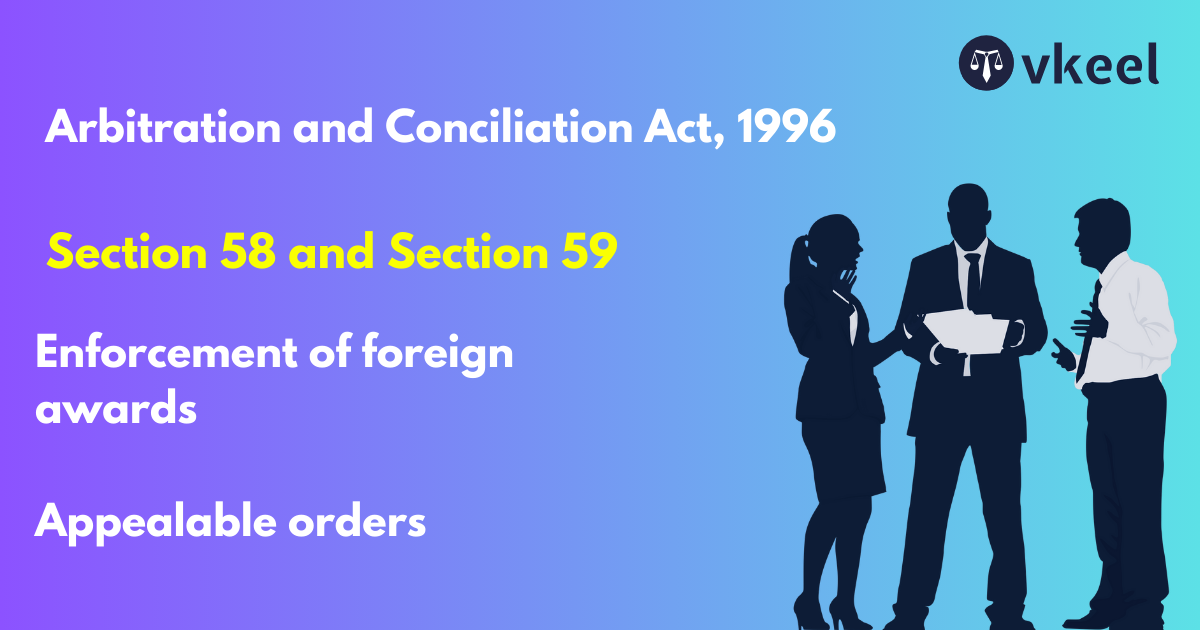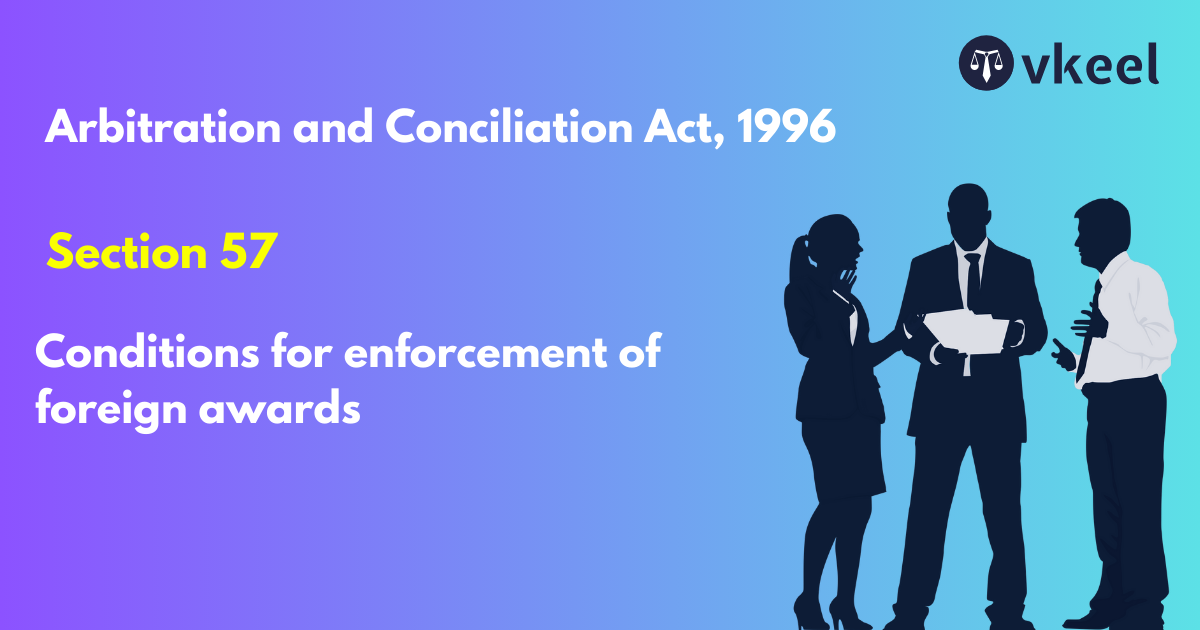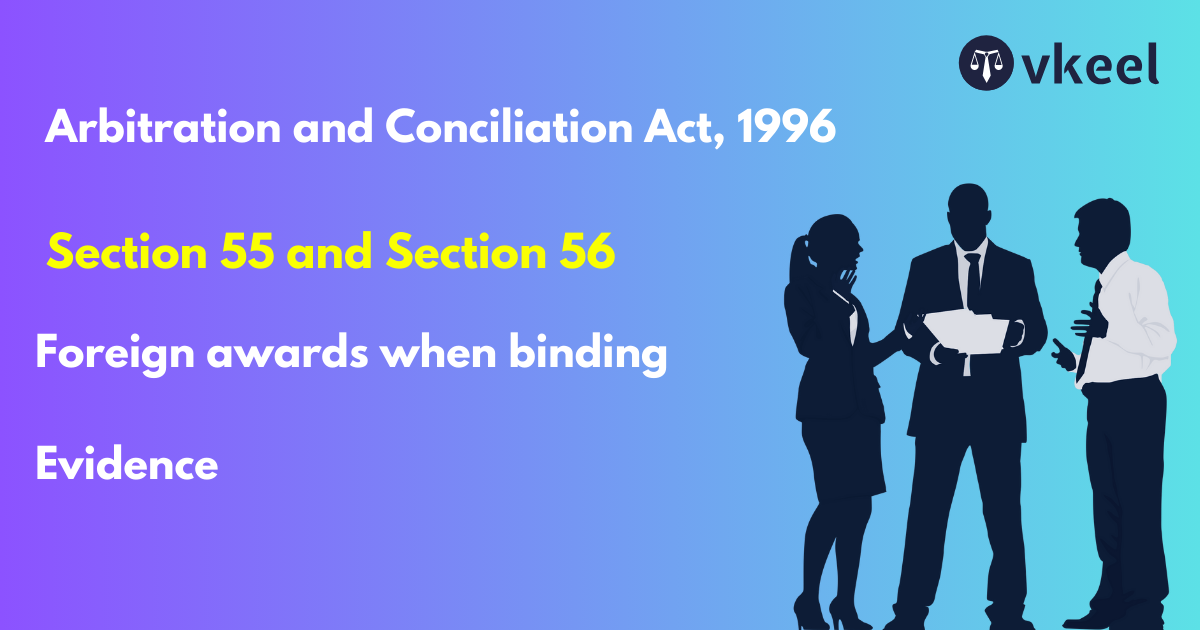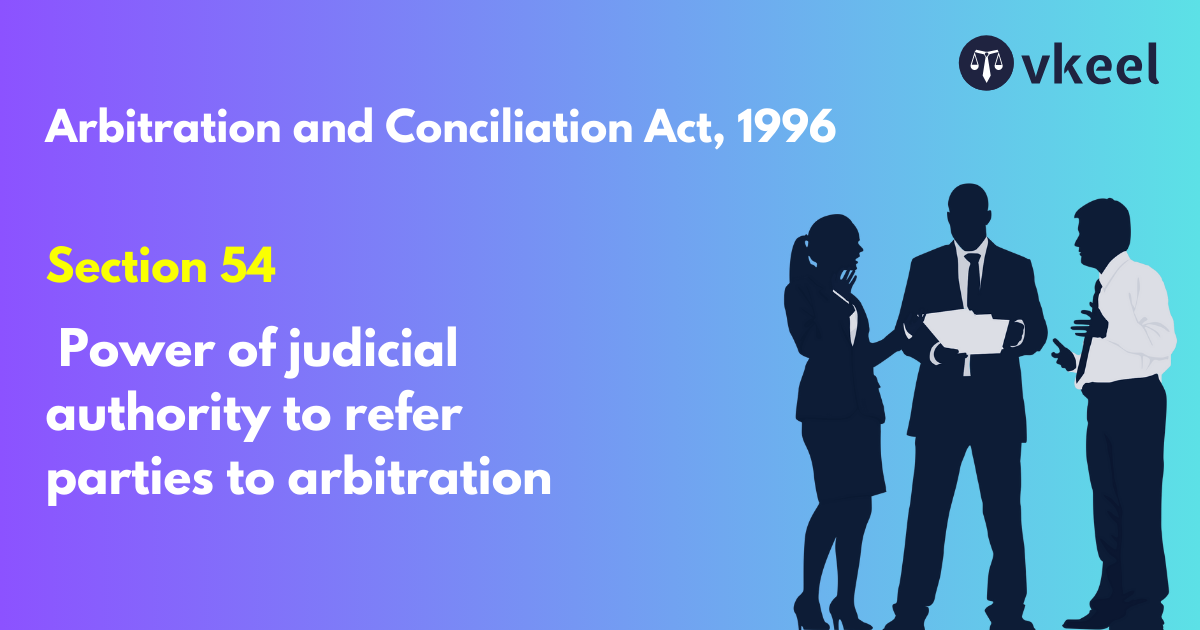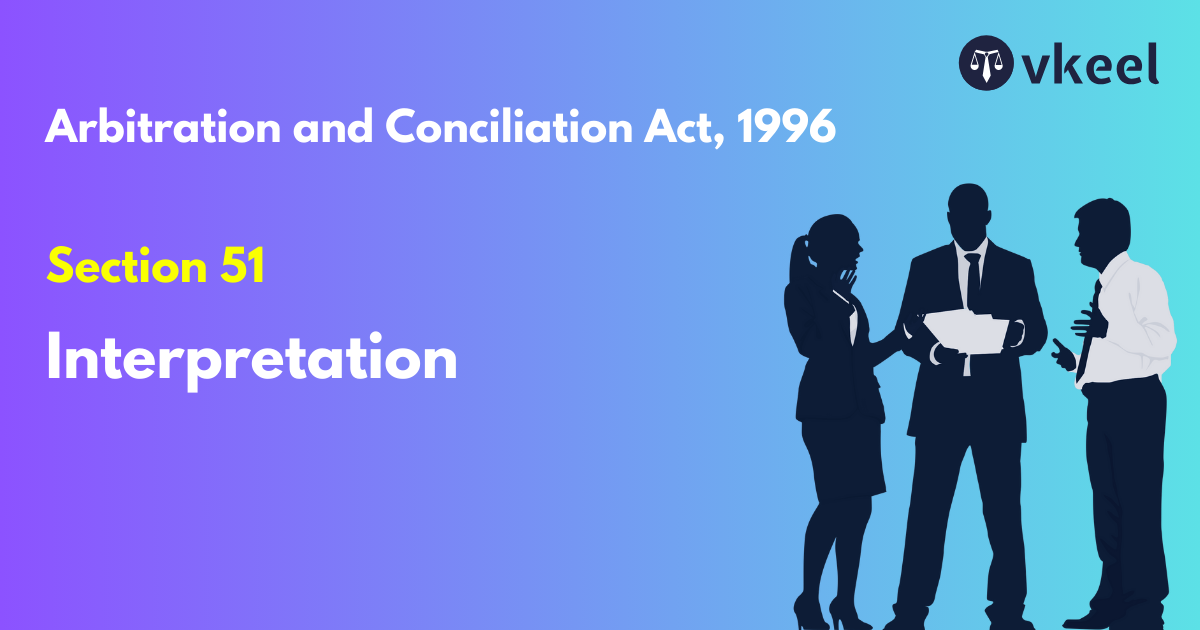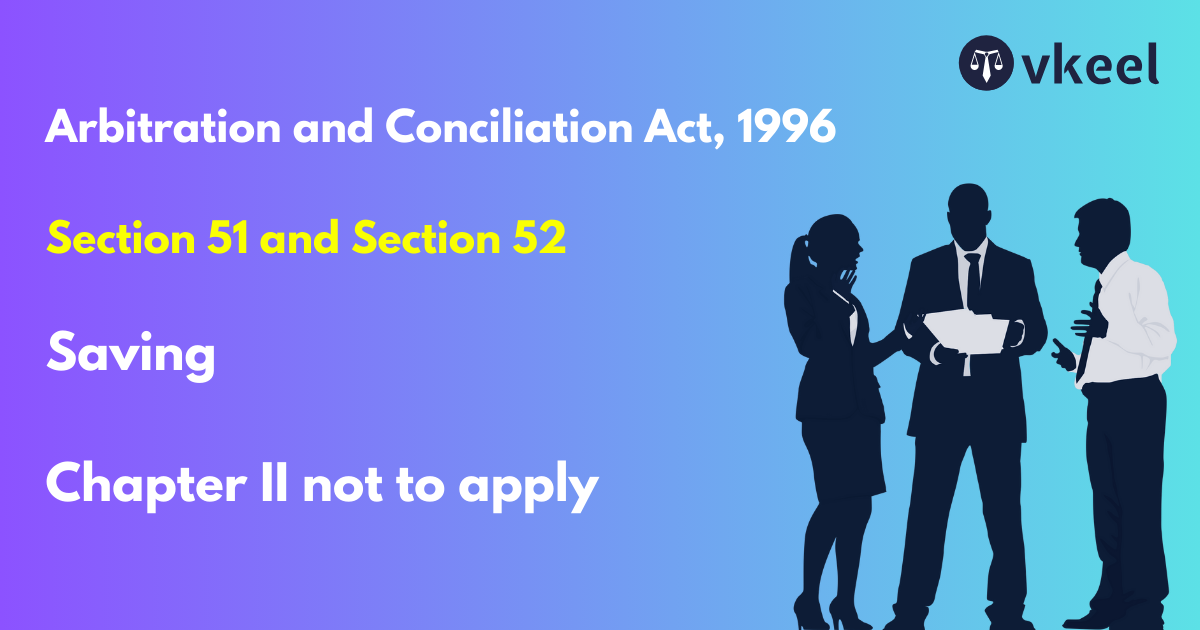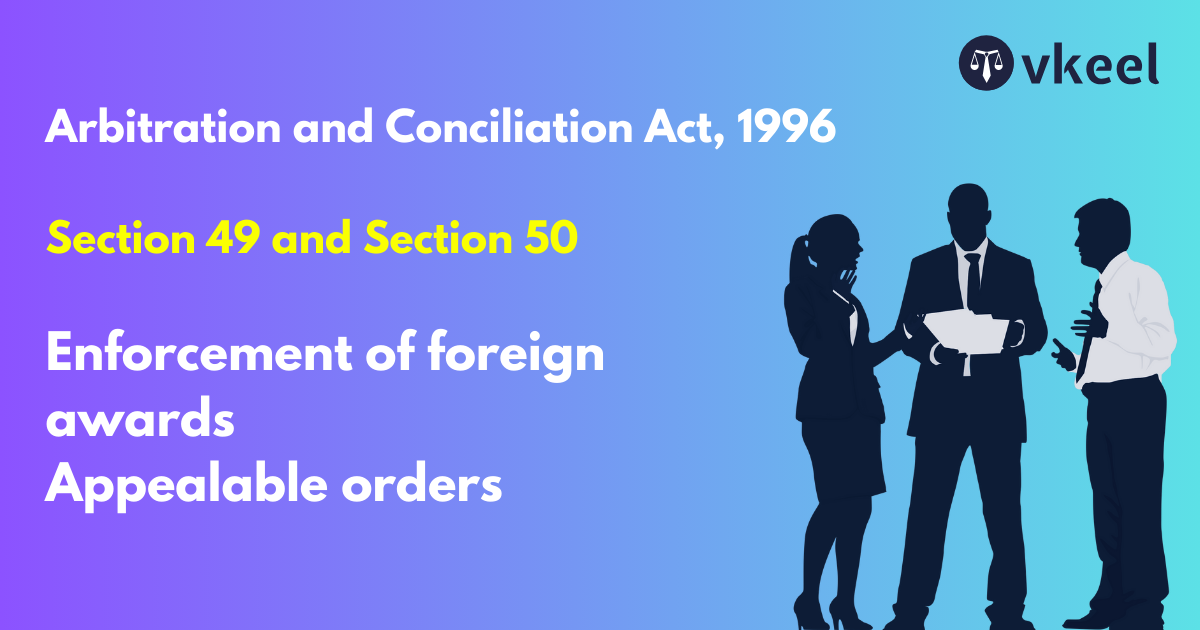Section 19: Arbitration and Conciliation Act, 1996
By Nivedita Dhiman
Table of Contents
Introduction
Section 19 of the act provides that the Code of Civil Procedure shall not be applicable before the arbitral tribunal. An arbitral tribunal has to conduct proceedings in accordance with the agreed procedure and in the absence of any agreement of parties in accordance with provisions of the statute and in respect of matters not covered either by agreement or statute keeping in view principles of natural justice, fairplay and equity.
The parties may expressly agree upon a procedure for the conduct of the reference either when they make the contract, or when they submit the dispute to the arbitrator. The effect of such an agreement depends upon when it is made. If the parties have agreed upon the procedure when the arbitrator is appointed, he is bound to follow it.
Section 19 of Arbitration and Conciliation
Determination of rules of procedure
(1) The arbitral tribunal shall not be bound by the Code of Civil Procedure, 1908 (5 of 1908) or the Indian Evidence Act, 1872 (1 of 1872).
(2) Subject to this Part, the parties are free to agree on the procedure to be followed by the arbitral tribunal in conducting its proceedings.
(3) Failing any agreement referred to in sub-section (2), the arbitral tribunal may, subject to this Part, conduct the proceedings in the manner it considers appropriate.
(4) The power of the arbitral tribunal under sub-section (3) includes the power to determine the admissibility, relevance, materiality and weight of any evidence.
Landmark Judgments of section 19
Madan Lal vs Nabi Bakshi, 1947
There is no rule of law that an arbitrator must decide all the issues framed in the suit expressly as long as the whole suit is decided by him. He is not bound by any rules of procedure or those of evidence, and it is not open to the parties to pick holes in the decision by a tribunal of their own choice.
Municipal Corp of Delhi vs Jagan Nath Ashok Kumar, 1987
The arbitrator is the sole judge of the quality as well as the quantity of evidence and it will not be for the court to take upon itself the task of being a judge the evidence before the arbitrator. It may be possible that on the same evidence the court might have arrived on a different conclusion than the one arrived at by the arbitrator but that by itself is no ground for setting aside the award for the arbitrator.
Vimal Madhukar Wasnik vs Arbitral Tribunal, 2006
Where the petitioner sought directions from the court to the arbitral tribunal to follow a particular procedure, it was held that the court could not exercise its extra-ordinary jurisdiction to issue a mandamus or a direction to the arbitral tribunal to follow a procedure which it thought was correct and proper.
MTNL vs Applied Electronics
This section exempts the arbitral tribunal from the shackles of CPC and evidence act and empowers it to formulate its own rules of procedure. However, once the arbitral proceedings are complete and an arbitral award has been made, parties may take recourse to the civil court if any one or both of them feel aggrieved. The expulsion of applicability of the provisions of CPC is limited to proceedings before the arbitral tribunal.
Pradyuman Kumar Sharma vs Jaysagar M Sancheti, 2013
A document which is disputed by a party and if not proved, cannot be considered by the arbitrator to be on record or as a piece of evidence. Taking into consideration an unproved document by the arbitrator would be in violation of the principles of natural justice. Furthermore, an arbitrator is not bound to refer a document to an expert witness suo motu.
Conclusion of section 19
The above-mentioned Act provides for determination of rules of procedure. It provides that the power of the arbitral tribunal includes the power to determine the admissibility, materiality, relevance and weight of any evidence. Hence, its important that while it empowers the arbitral tribunal to conduct proceedings, in a manner it thinks appropriate, that power includes the evidence placed before it by the parties by giving equal opportnities.
Disclaimer:
The information provided in the article is for general informational purposes only, and is not intended to constitute legal advice or to be relied upon as a substitute for legal advice. Furthermore, any information contained in the article is not guaranteed to be current, complete or accurate. If you require legal advice or representation, you should contact an attorney or law firm directly. We are not responsible for any damages resulting from any reliance on the content of this website.

